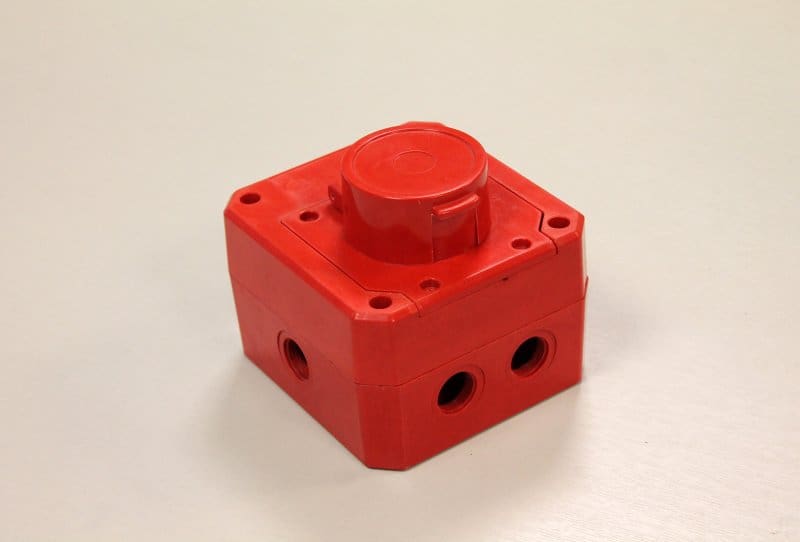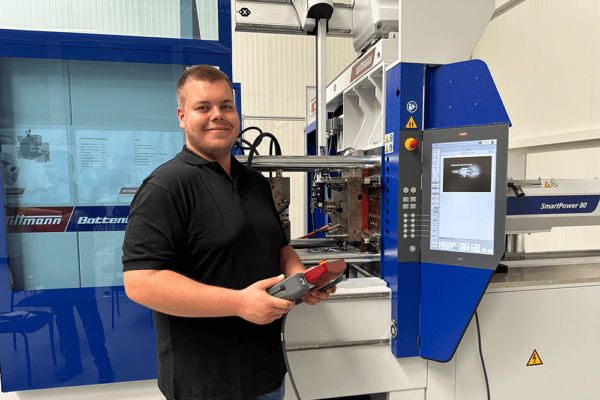
Merriott Blog | Thermoplastics for Complex Electronic Components
|
Getting your Trinity Audio player ready...
|
Electronic devices are becoming smaller, more complex, and ubiquitous. However, this wholesale shift to digital requires all parts and processes of electronics manufacturing to keep pace with the different requirements of growing customer demand and innovation. In this blog, Merriott Group take a look at one critical part of electronics’ evolution – injection moulding thermoplastics!
What is Injection Moulding Thermoplastics?
Injection moulding is a versatile manufacturing process used across various industries to produce high-quality, complex parts in large volumes. For electronics, where miniaturisation and functionality are key success metrics, injection moulding thermoplastics have become critical for creating small yet complex components with precision.
The process involves injecting molten thermoplastic material into a mould cavity under high pressure. Once it cools, the thermoplastic solidifies, and the finished part is ejected from the mould. This method has several advantages:
Strong yet agile: Thermoplastics offer dual benefits that are impossible to find with other materials; they deliver strong components with a degree of flexibility. It is bendable but not easily breakable!
Precision: The injection moulding process provides extreme control and precision over the manufacturing of the components, and the smaller types of micro or nano thermoplastics bring more precision to tinier components that are now required for electronic devices.
Efficient, scalable, and cost-effective: With the injection moulding process, it is easier to manufacture identical parts on a scale with minimal waste. The method can easily be scaled up or down on demand, and the low wastage, high-speed method makes it naturally less expensive than other methods of component manufacturing.
Current and Future Applications in Electronic Components
Connectors and Housings:
Thermoplastics like nylon, PBT, and PC have excellent electrical insulation and heat resistance, making them ideal for developing connectors for electronic devices.
As thermoplastics products are durable and, in most cases, watertight, they also make a great base material for housings for electronics. They can be manufactured to exact specifications and provide reliable performance in demanding conditions.
Insulators:
The insulating properties of thermoplastics such as PVC and Polypropylene are perfect for protecting conductors and preventing short circuits. Hence, they are widely used as base materials for insulators in cables, wires, and circuit boards.
Microstructures & smaller structures:
Microstructures, such as microfluidic channels and miniature sensors, are used in many electronic devices, such as medical devices. Injection moulding thermoplastics are perfect for microstructures with high aspect ratios and precise dimensions.
Smaller parts like switches, buttons, and internal components are also handled efficiently by moulded thermoplastics, as they usually offer durability and heat resistance.
Enclosures and Covers:
Thermoplastics are tough and affordable and provide lightweight yet durable solutions for casings and covers that can withstand fire, moisture, dust, wear and tear, and various weather conditions. They can also be made to specifications and can be easily made to reflect the brand design/color or other aesthetic elements.
Future Outlook
There is ongoing research around making thermoplastics more resilient to heat and fire, providing better electrical insulation, enhancing thermal conductivity, and meeting other demands of modern electronic devices. Advancements in additive manufacturing techniques, such as 3D printing, will also impact and change how injection moulding processes are conducted, bringing more speed and agility to the manufacturing processes.
Looking ahead, injection moulding thermoplastics will grow to play an even more significant role in the electronics manufacturing process. Keep watching this space for the latest news, trends, and more to stay up-to-date with developments in the world of thermoplastics.
Read more news from Merriott Group here.
Merriott Group
+44 (0) 1460 72457
Website
Email





